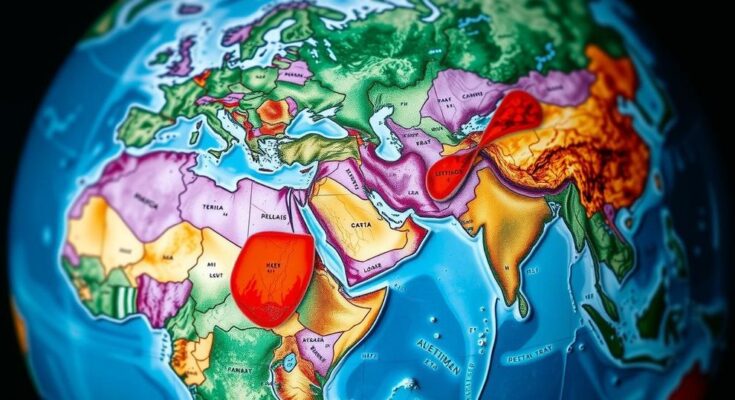Australia has implemented Do Not Travel warnings for ten nations due to escalating threats, effectively halting tourism and travel activities. Countries affected include Russia, North Korea, Venezuela, and others, all facing significant safety issues. The warnings emphasize the far-reaching impacts of geopolitical crises on global travel.
Australia has issued Do Not Travel warnings for ten countries, including Russia, North Korea, Venezuela, Haiti, Iran, Myanmar, Sudan, Syria, Ukraine, and Libya, due to severe safety risks. The Australian Department of Foreign Affairs and Trade (DFAT) cites escalating threats such as armed conflict, terrorism, civil unrest, and arbitrary detention, which severely impact tourism and economic recovery in these regions. This situation highlights the ongoing influence of geopolitical crises on global travel patterns.
In Russia, the Australian government has urged citizens to leave immediately due to significant risks including arbitrary detention, increasing hostility towards foreigners, and active military zones. The presence of foreigners is now subject to scrutiny and potential danger, effectively paralyzing tourism.
As for North Korea, the country remains inaccessible as borders are closed and tours have been indefinitely suspended. The state-controlled tourism sector has deteriorated, leading to a complete absence of foreign visitors since the restrictions were implemented.
Venezuela is marked by turmoil, with rampant violent crime, severe shortages of essential goods, and an elevated risk of arbitrary arrests. Demonstrations frequently escalate into violence, rendering any form of travel infeasible under current conditions.
Haiti is experiencing a nationwide State of Emergency amid rampant gang violence, which has impacted transportation and resulted in the suspension of major airlines’ services. With all crossings to the Dominican Republic closed, tourism is effectively halted.
In Iran, the combination of military threats and civil unrest has made travel extremely dangerous. The Iranian cultural tourism sector has suffered greatly as Australians face high risks of arbitrary detention, prompting advisories against travel.
Australia advises against travel to Myanmar as the country grapples with the violent aftermath of a military coup. The tourism sector has drastically declined, reflecting the volatile situation which poses significant hazards to travelers.
The situation in Sudan remains dire as violence continues to rise. Australians are instructed to leave the country, although safe commercial departures are increasingly fraught with danger, severely curtailing travel options.
Syria has become one of the most perilous travel destinations globally, plagued by airstrikes and high civilian casualties. The active presence of terrorist groups further complicates any efforts for travel and tourism.
The ongoing war in Ukraine has rendered the entire nation a high-risk area with continuous military conflict, greatly diminishing tourism potential. The security risks are profound, with foreign fatalities reported.
Libya faces its own challenges as terrorism and armed conflict continue to disrupt life. Despite its appealing historical and geographical features, tourism is entirely suspended, with Australians advised to prioritize safety wherever possible.
The Do Not Travel status for these ten countries effectively ends tourism activity, underscoring the broader trend of how geopolitical instability intricately shapes international tourism. The warnings indicate that travelers and tour operators must continually reassess risk management and safety protocols.
In conclusion, Australia’s Do Not Travel warnings for ten high-risk nations reflect a significant halt in global tourism activities due to safety concerns. The advisories illustrate the critical impact of ongoing conflict and geopolitical instability, which affect travel infrastructure and economic prospects. As long as these dangerous conditions prevail, responsible tourism in these regions remains unattainable, leaving many in uncertainty.
Original Source: www.travelandtourworld.com




